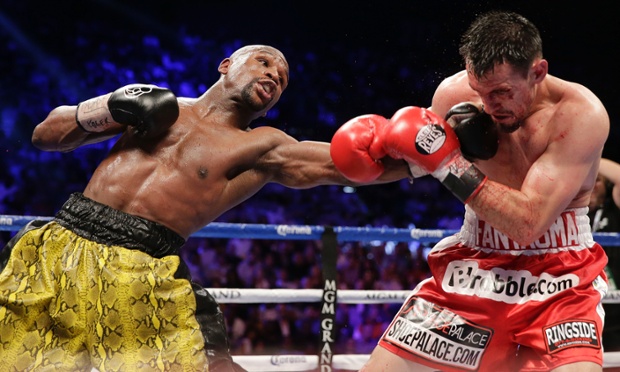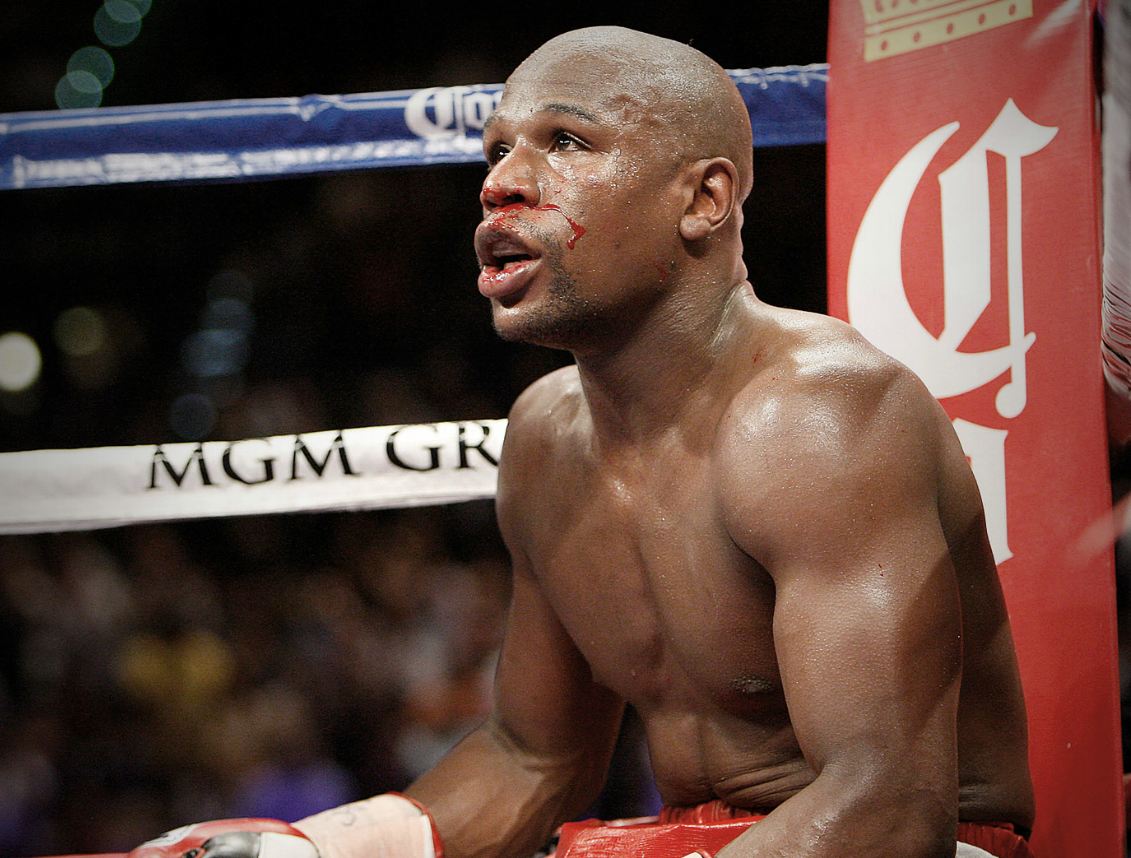Will The Real Floyd Mayweather Jr. Please Stand Up?
On Saturday night Floyd Mayweather thoroughly outclassed Robert Guerrero over twelve rounds. This was the result most expected given their contrast in talent. While the absence of any thrilling exchanges made for a fairly dull fight, the pound for pound king’s performance was exquisite, a supreme display of boxing skill and calculation, even though at various points the arena was serenaded by boos. These catcalls represented the uneasy attitude fans have towards Floyd’s dominance, which has been the only consistent feature of his long, successful, and ultimately strange career.

Floyd Mayweather is the world’s highest paid athlete but hardly its most beloved. Many sports fans evince disdain at the mention of his name even as they begrudgingly acknowledge his talent. They don’t care for his obnoxious persona and accuse him of handpicking his opponents. They make fun of his bizarre relationship with 50 Cent and invariably bring up his perceived dodge of Manny Pacquiao (the default boxing criticism of the cursory boxing fan). They have difficulty relating to his ‘Money’ image and its ceaseless, photo-and-video abetted emphasis on his wealth. Floyd worked tirelessly to turn himself into a villainous boxing capitalist, and this persona, in concert with his colossal talent and some very smart business decisions, has made him fabulously rich.
There is an emptiness to Floyd’s ‘Money’ image though, and it precludes fans from connecting with him. When playing ‘Money,’ Floyd becomes a distant, defensive, and humorless braggart. It’s a contrived and boring role since it’s predicated entirely on ostentatious celebrations of bling. Promotional segments involving the boxer loudly counting out stacks of money quickly become tiresome. In the lead-up to the Guerrero fight Floyd was less obnoxious than in the past, perhaps because he’s aware the conceit has become too old to shock. When he isn’t acting, or at least doesn’t appear to be doing so, he can be warm and genial, especially when speaking analytically about boxing. Floyd’s understanding and knowledge of the sport is peerless, which makes him an intelligent interview if he feels like playing along.

The problem with the public’s reception of Floyd, which is ambivalent for someone of such immense talent, is that no one knows exactly who he is. His identity oscillates from entertaining, even likable, to annoying and loathsome, leaving no fixed public self that fans can attach themselves to. It is fundamentally a compound problem: one of style and personality. Floyd’s ring skills, however great, are too subtle to excite casual fans. And unlike with Mike Tyson for example, people appear unwilling to overlook Floyd’s perceived shortcomings or strangeness of character to appreciate his boxing brilliance.
If they knew him better and were comfortable with his personality, casual followers could more easily invest in the Mayweather juggernaut as sports fans are by nature infatuated with athletic dominance. In his terrific piece on the fight, Rafael García Quiñones noted how many seemed to be in attendance not because they were fans of either fighter, but since they felt that associating themselves with the event was a matter of social importance. Everyone knows what Floyd does is impressive, even if they can’t truly appreciate it, but outside of his most hardcore fans, there is no cult of personality. They don’t love and admire the person, but instead revere his work with the respectful detachment one approaches a famous painting with.
This is unfortunate as he is a virtuoso athlete who has mastered the nuances of an impossible sport. As so many have said, to watch Floyd box is to witness a performer in complete mental and physical control of his gifts. The lightning hand speed and graceful defense is beautiful to watch, and there are few more impressive highlights in sports than slow motion replays in which he perfectly anticipates an opponent’s punch and counters with precision while at the same time moving fluidly away from danger. That is Floyd’s genius, and the pronounced mental advantage he has over everyone turns facing him into a trek through a labyrinth that only gets darker and more confusing the deeper one gets.

Floyd has five fights left on his deal with Showtime, after which he has said he’ll retire, though he’s promised this before only to renege on his word. His legacy as a fighter will be determined in this final chapter of his career, and it seems to me that how he authors it will depend largely on how he presents himself outside of the ring. To transcend his sport in the way he so desperately wants to Floyd must bring his true personality into starker relief, a process he seems to be halfway through if his recent sportsmanship and poise are evidence of positive change.
It would be foolish for me to suggest what or who the ‘real Floyd’ is, but I do think fans will be more interested in his career if they figure out who he is and what he wants to be. He seems more introspective now after his stint in jail and is perhaps less interested in self-manufacturing. He’s made his millions and can and should just be himself. Maybe then he’ll be known more for his awesome talents than his inconsistent behaviour. He doesn’t have to turn from a heel into a hero, but only reveal himself as human.
— Eliott McCormick





